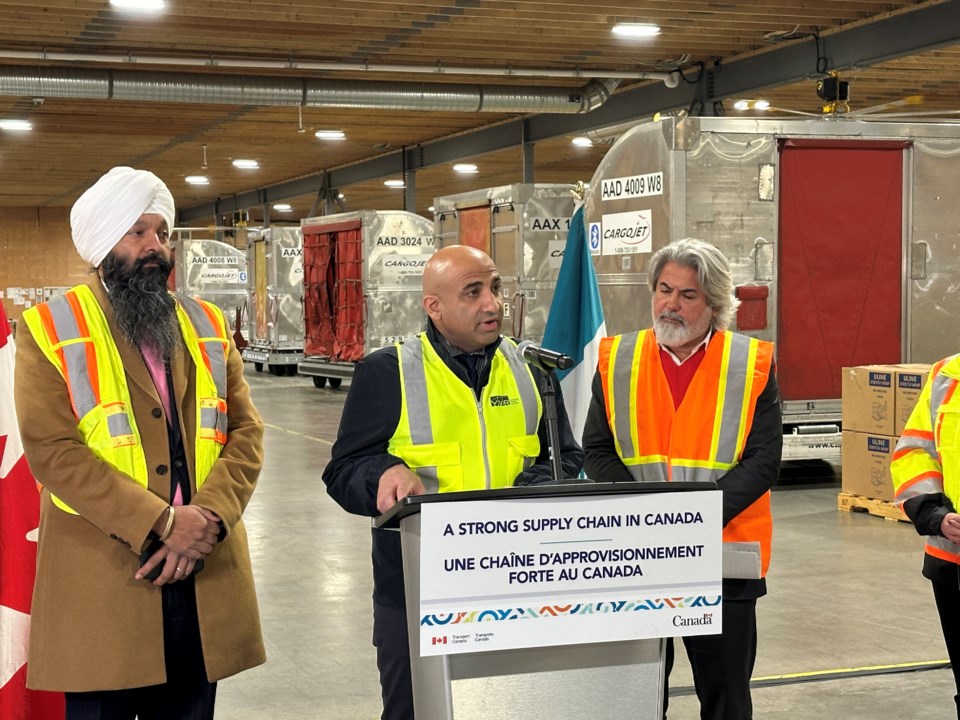Transport sa国际传媒 is investing millions in Vancouver International Airport (YVR) to improve efficiency and increase cargo volume.
Minister of Transport, Pablo Rodriguez, announced on Thursday an investment of up to $74.3 million to help boost YVR's cargo capacity by more than 50 per cent, or 160,000 tonnes, by 2027.
The increase is expected to bring a $22 billion increase to sa国际传媒's trade potential and funding is provided through the National Trade Corridors Fund.
The investment is in support of a $150 million project, which includes plans to increase parking space capacity for four Boeing 777 freighter aircraft, upgrade an access road, as well as construction preparations for a new 270,000-square-foot air cargo warehouse, which will enable future dyke raising work.
YVR will be matching the investment and work began in May 2023, according to YVR's announcement. Substantial completion is set for 2028.
The investment is expected to support business growth for Canadian carriers such as Air sa国际传媒, WestJet and Cargojet and reduce the need for local exporters to travel to further airports.
Truck travel is estimated to be reduced by up to 229 million kilometres over 30 years, improving highway safety and reducing greenhouse gas emissions.
According to City of Richmond data, 82,805 tonnes of air cargo passed through YVR during the third quarter of 2023, marking a 0.5-per-cent decrease from the same period in 2022.
Sectors expected to benefit from the investment include agriculture and fisheries, which need to export perishable items promptly, as well as advanced manufacturing and pharmaceuticals.
The funding will help improve sustainability, said YVR, as Boeing 777 freighter aircraft are "among the most fuel-efficient freighters in use." The federal government expects this move will reduce pollution by up to 25 per cent.



